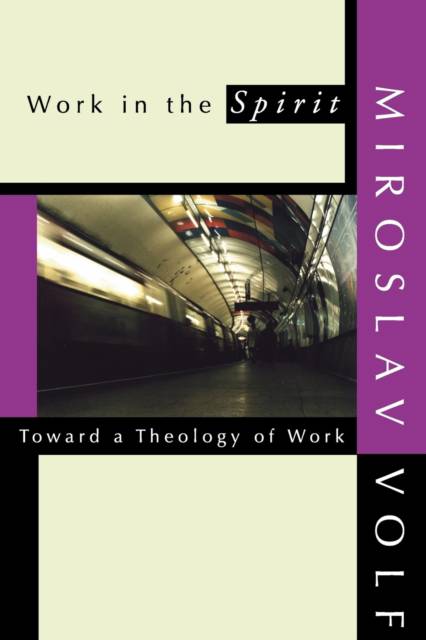
- Retrait gratuit dans votre magasin Club
- 7.000.000 titres dans notre catalogue
- Payer en toute sécurité
- Toujours un magasin près de chez vous
- Retrait gratuit dans votre magasin Club
- 7.000.0000 titres dans notre catalogue
- Payer en toute sécurité
- Toujours un magasin près de chez vous
35,45 €
+ 70 points
Description
Since the rise of modern industrial society, work has come to pervade and rule the lives of men and women. Although there have been many popular books and church documents on on the Christian understanding of work, this is the first scholarly effort to articulate a developed Protestant theology of work. In Work in the Spirit, Miroslav Volf interprets work from a new perspective - in terms of the doctrine of the Holy Spirit. He exhaustively explores the nature of work in both capitalist and socialist societies and considers a variety of work, including industrial, agricultural, medical, political, and artistic work. Examining the importance of alienation in work in industrial and information societies (particularly in the relation of workers to management and technology), he analyzes various forms of such alienation, and elucidates the character of humane work. On the basis of the ""pneumatological"" theology of work that he develops, Volf rejects the traditional Protestant understanding of work as vocation, and takes the concept of charisma as the cornerstone for his theological reflection on work. He denies that one is ""called"" to do a particular work irrespective of one's inclinations, and asserts, instead, that it is our privilege to do the kind of work for which God's spirit has gifted us. All human work done in accordance with the will of God, Volf argues, is cooperation with God in the preservation and transformation of the world.
Spécifications
Parties prenantes
- Auteur(s) :
- Editeur:
Contenu
- Nombre de pages :
- 268
- Langue:
- Anglais
Caractéristiques
- EAN:
- 9781579106416
- Date de parution :
- 27-04-01
- Format:
- Livre broché
- Format numérique:
- Trade paperback (VS)
- Dimensions :
- 154 mm x 233 mm
- Poids :
- 381 g

Les avis
Nous publions uniquement les avis qui respectent les conditions requises. Consultez nos conditions pour les avis.






